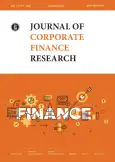Do Emerging Markets Succeed in Implementing Sustainability Principles in Infrastructure Finance? Evidence from Public-Private Partnerships in Russia
- Authors: Kharlamov A.1
-
Affiliations:
- PJSC Otkrytie Financial Corporation Bank, Moscow, Russia
- Issue: Vol 17, No 1 (2023)
- Pages: 17-26
- Section: New Research
- URL: https://journal-vniispk.ru/2073-0438/article/view/302492
- DOI: https://doi.org/10.17323/j.jcfr.2073-0438.17.1.2023.17-26
- ID: 302492
Cite item
Full Text
Abstract
This paper is the author’s contribution to existing literature on the evaluation of ways to co-create ESG benefits in the process of implementing a public-private partnership (PPP). The author developed his own ESG rating based on a sound set of indicators and an independent evaluation of publicly available information on sustainable development issues. For the purposes of compiling a rating score, the specific issues relevant to the evaluation of a PPP project’s sustainability con siderations in view of national agenda were analyzed. Based on an analysis of academic literature and publicly available information about similar ratings, the author proposes an approach to measuring these issues and incorporating the results in the integrated ESG rating. The developed ESG benefit evaluation instrument may be used by institutional, private and state PPP market participants for a comprehensive analysis of their investment activity. The case study analysis of two PPP projects from Russian practice revealed sustainability failures in corporate governance practices in the process of investing in infrastructure; in addition, the author proposed potential ways of overcoming some of the failures based on case comparison. This paper provides a new outlook on the methodology of a PPP-adjusted ESG rating that is relevant for evaluating and monitoring of corresponding investments in infrastructure on emerging markets.
About the authors
A. Kharlamov
PJSC Otkrytie Financial Corporation Bank, Moscow, Russia
Author for correspondence.
Email: a.kharlamov@mail.ru
References
- Safarov S. Public-private partnership as a challenge for EAEU cooperation. Journal of Corporate Finance Research. 2018;12(3):73-80. https://doi.org/10.17323/j.jcfr.2073-0438.12.3.2018.73-80
- Grimsey D., Lewis M.K. Public private partnerships: The worldwide revolution in infrastructure provision and project finance. Cheltenham: Edward Elgar Publishing; 2004. 288 p. DOI: https://doi.org/10.4337/9781845423438
- Hodge G.A., Greve C. Public-private partnerships: An international performance review. Public Administration Review. 2007;67(3):545-558. https://doi.org/10.1111/j.1540-6210.2007.00736.x DOI: https://doi.org/10.1111/j.1540-6210.2007.00736.x
- Yescombe E.R. Public-private partnerships: Principles of policy and finance. Amsterdam: Butterworth-Heinemann; 2007. 368 p. DOI: https://doi.org/10.1016/B978-075068054-7.50025-3
- Hodge G.A., Greve C., Boardman A.E., eds. International handbook on public-private partnerships. Cheltenham: Edward Elgar Publishing; 2010. 656 p. DOI: https://doi.org/10.4337/9781849804691
- Hueskes M., Verhoest K., Block T. Governing public-private partnerships for sustainability. International Journal of Project Management. 2017;35(6):1184-1195. https://doi.org/10.1016/j.ijproman.2017.02.020 DOI: https://doi.org/10.1016/j.ijproman.2017.02.020
- Markovskaya E., Holodkova V., Radushinsky D. Public-private partnerships: Does Russian practice follow international experience? Journal of Corporate Finance Research. 2019;13(2):104-113. https://doi.org/10.17323/j.jcfr.2073-0438.13.2.2019.104-113 DOI: https://doi.org/10.17323/j.jcfr.2073-0438.13.2.2019.104-113
- Keeys L.A., Huemann M. Project benefits co-creation: Shaping sustainable development benefits. International Journal of Project Management. 2017;35(6):1196-1212. https://doi.org/10.1016/j.ijproman.2017.02.008 DOI: https://doi.org/10.1016/j.ijproman.2017.02.008
- Villalba-Romero F., Liyanage C., Roumboutsos A. Evaluating success in PPP road projects in Europe: A comparison of performance measurement approaches. Transportation Research Procedia. 2016;14:372-381. https://doi.org/10.1016/j.trpro.2016.05.089 DOI: https://doi.org/10.1016/j.trpro.2016.05.089
- Billio M., Costola M., Hristova I., Latino C., Pelizzon L. Inside the ESG ratings: (Dis)agreement and performance. Corporate Social Responsibility and Environmental Management. 2021;28(5):1426-1445. https://doi.org/10.1002/csr.2177 DOI: https://doi.org/10.1002/csr.2177
- Pagano M.S., Sinclair G., Yang. T. Understanding ESG ratings and ESG indexes. In: Boubaker S., Cumming D., Nguyen D.K., eds. Research handbook of finance and sustainability. Cheltenham: Edward Elgar Publishing; 2018:339-371. https://doi.org/10.4337/9781786432636.00027 DOI: https://doi.org/10.4337/9781786432636.00027
- Hebb T. Investing in sustainable infrastructure. In: Croft T., Malhotra A. The responsible investor handbook: Mobilizing workers’ capital for a sustainable world. Abingdon, New York: Routledge; 2013:251-273.
- Weber B., Staub-Bisang M., Alfen H. Infrastructure as an asset class: Investment strategy, sustainability, project finance and PPP. 2nd ed. Chichester: John Wiley & Sons Ltd; 2016. 432 p. DOI: https://doi.org/10.1002/9781119226574
- The Russians named the main environmental problems of the country. RBC. Feb. 06, 2019. URL: https://www.rbc.ru/politics/06/02/2019/5c59b1709a79478082250bcb (In Russ.).
- Research Holding Romir. URL: https://romir.ru/eng
- Daly H.E., Farley J. Ecological economics: Principles and applications. 2nd ed. Washington, DC: Island Press; 2011. 484 p.
- Devolder S., Block T. Transition thinking incorporated: Towards a new discussion framework on sustainable urban projects. Sustainability. 2015;7(3):3269-3289. https://doi.org/10.3390/su7033269 DOI: https://doi.org/10.3390/su7033269
- Laloё F. Information at the interface between supply and demand for indicators: The use of a model with estimated parameter values as a base for indication in multicriteria analyses. International Journal of Sustainable Development. 2007;10(1-2):33-45. https://doi.org/10.1504/IJSD.2007.014412 DOI: https://doi.org/10.1504/IJSD.2007.014412
- Neumayer E. Weak versus strong sustainability: Exploring the limits of two opposing paradigms. Cheltenham: Edward Elgar Publishing; 2003. 296 p.
- Safarov S. Public-private partnership as a challenge for EAEU cooperation. Journal of Corporate Finance Research. 2018;12(3):73-80. https://doi.org/10.17323/j.jcfr.2073-0438.12.3.2018.73-80 DOI: https://doi.org/10.17323/j.jcfr.2073-0438.12.3.2018.73-80
- O’Riordan T. The politics of sustainability. In: Turner R.K., ed. Sustainable environmental management: Principles and practice. London: Belhaven Press; Boulder, CO: Westview Press; 1988:29-50.
- Bossel H. Indicators for sustainable development: Theory, method, applications. A report to the Balaton Group. Winnipeg: International Institute for Sustainable Development; 1999. 138 p. URL: https://www.iisd.org/system/files/publications/balatonreport.pdf
- Carter N. The politics of the environment: Ideas, activism, policy. 2nd ed. Cambridge, New York: Cambridge University Press; 2007. 432 p. DOI: https://doi.org/10.1017/CBO9780511819179
- Louche C., Delautre G., Balverdi Pimentel G. Assessing companies’ practices on decent work: An analysis of ESG rating methodologies. International Labour Review. 2023;162(1):69-97. https://doi.org/10.1111/ilr.12370 DOI: https://doi.org/10.1111/ilr.12370
- Dyllick T., Hockerts K. Beyond the business case for corporate sustainability. Business Strategy and the Environment. 2002;11(2):130-141. https://doi.org/10.1002/bse.323 DOI: https://doi.org/10.1002/bse.323
- Silvius G.A.J., Schipper R.P.J. Sustainability in project management: A literature review and impact analysis. Social Business. 2014;4(1):63-96. http://dx.doi.org/10.1362/204440814X13948909253866 DOI: https://doi.org/10.1362/204440814X13948909253866
- Silvius G., Schipper R., Planko J., van den Brink J., Köhler A. Sustainability in project management. Farnham: Gower Publishing, Ltd.; 2012. 182 p.
Supplementary files










